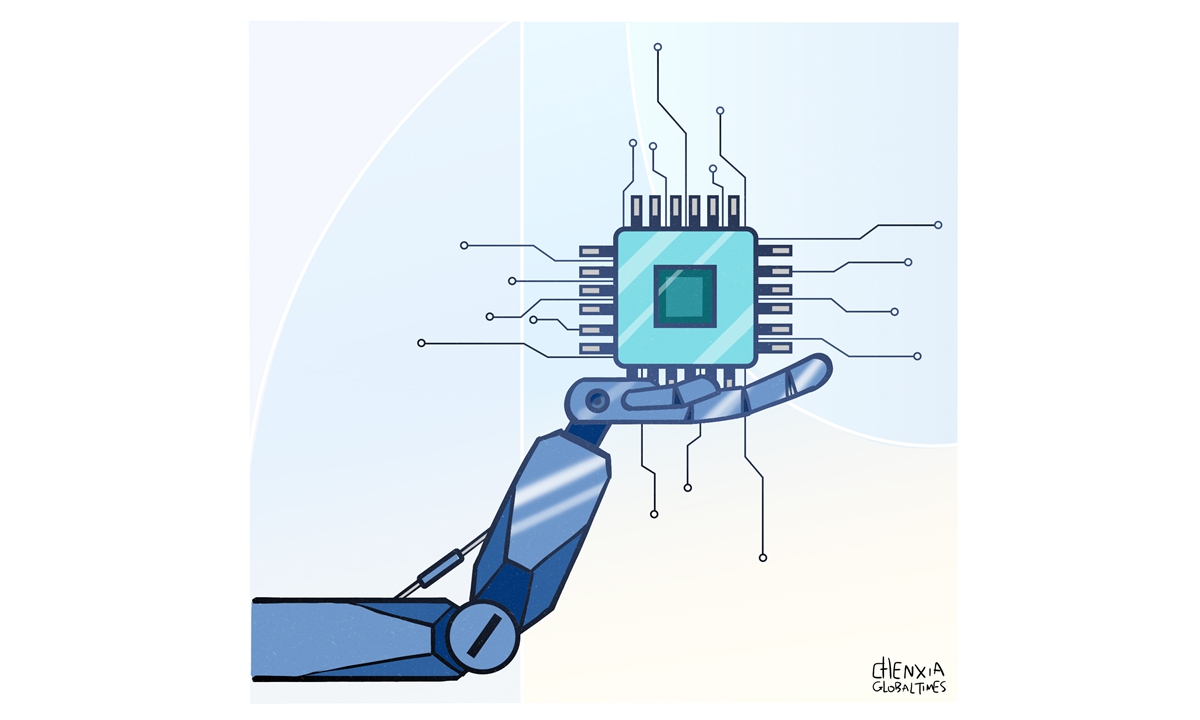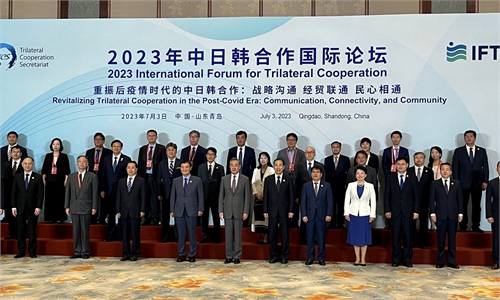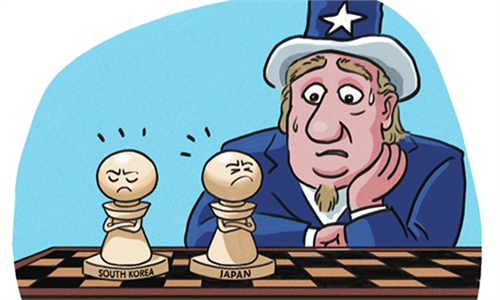
Illustration: Chen Xia/Global Times
China's export controls on gallium and germanium do not target any specific country, including Japan and South Korea. But, amid the US-initiated tech war against China, decision-makers in Japan and South Korea should maintain strategic sobriety, avoiding allowing the two countries to be used as a cannon fodder by the US in its relentless technology crackdown campaign against China.Japan and South Korea are reportedly among the top destinations for China's gallium and germanium exports. Japanese Trade Minister Yasutoshi Nishimura said Tokyo will watch how China implements planned export restrictions and seek answers on the intent behind the move, adding that "if any measures are unfair toward Japan in light of international rules such as those under the WTO, we will act accordingly," Bloomberg reported. South Korean officials also said the country would continue to monitor the situation.
It should be noted that China's export control on gallium and germanium comply with laws and common international practice, and the move is aimed at safeguarding China's legitimate rights and interests, instead of provoking trade frictions with economic partners. If any country unilaterally thinks it is a target of China's legitimate actions to protect its own interests, the country should first ask itself whether it has done anything that is detrimental to China's economy, or, more specifically, whether it has suppressed the Chinese economy by restricting China's access to semiconductors or other high-tech products through normal international trade and cooperation.
Since the US' "decoupling" campaign began to make headlines several years ago, Washington has been trying to coerce its allies to exclude China from global supply chains, especially in cutting-edge technology industries such as the semiconductor sector. In this process, Japan and South Korea are under intense outside pressure. It is understandable for the two countries to become a target of US' economic coercion, because the two are important players in the global semiconductor supply chains. At present, better than worrying about China's export controls, policymakers in the two countries should maintain strategic sobriety, resist the lobbying and US' economic hegemony, maximize their nations' own interests amid the US-initiated chip war, and strengthen economic cooperation with China, especially in high-tech sectors.
On the same day when China announced to impose export controls on gallium and germanium, the 2023 International Forum for Trilateral Cooperation, involving China, Japan, and South Korea, kicked off on Monday in Qingdao, East China's Shandong Province. According to media reports, senior diplomats from the three countries expressed willingness at the forum to make joint efforts to restart trilateral cooperation mechanism and boost regional economic and social recovery.
China is an important trading partner to Japan and South Korea. Recent decades have witnessed the rise of regional supply chains that link Asian manufacturing bases with each other. In the Asian production network, economic complementarity has been enhanced. Although some countries outside the region have tried to deliberately split regional cooperation, Japan and South Korea should be careful not to fall into the "decoupling" trap.
On Monday, the Japan Association for the Promotion of International Trade (JAPIT) President Yohei Kono led a delegation to China for a visit, with experts saying that the trip represented the Japanese business community's wish to maintain and strengthen economic and trade ties with China. Last week, a promotional event for the sixth China International Import Expo is held in Seoul, South Korea, where South Korean enterprises also expressed their enthusiasm for participating in the expo and exploring the Chinese market.
Amid the US' ill-intentioned chip war, Washington may try to drive a wedge in economic and trade relations among China, Japan and South Korea, but the three countries, as well as other Asian nations, should practice open regionalism, safeguard regional supply chain stability, and avoid coercion by US hegemony in the high-tech field. Mutually beneficial cooperation is the best way to resolve disputes and eliminate misunderstandings, especially in the sensitive fields of semiconductor.
The author is a reporter with the Global Times. bizopinion@globaltimes.com.cn



